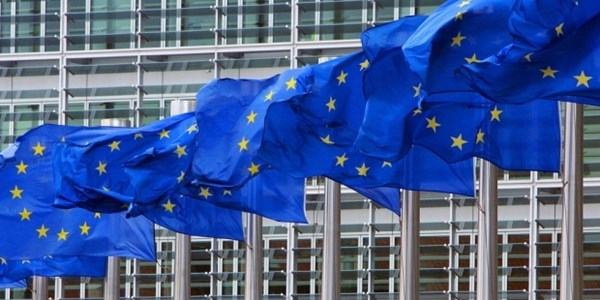Kremlin: Russia may abandon euro if it is used as ‘instrument of pressure’
Russia, following its de-dollarization policy, may announce a policy of abandoning the euro if the European authorities begin to use their currency as an instrument of pressure, as the United States does, said in an interview with Interfax Deputy Foreign Minister Alexander Pankin.
So far, according to Pankin, there are no reasons for this. Russia does not face problems in euro settlements, and the replacement of the European currency with another one only for political reasons is "economically inexpedient" and can lead to losses for businesses. Moreover, Moscow is engaged in a dialogue with the EU "on increasing the international role of the euro and the possibility of using it to pay for energy supplies," Pankin said.
"At the same time, if Brussels hypothetically professes similar to American deterrence measures and uses its own currency as an instrument of pressure and control, then, of course, all the accumulated knowledge and de-dollarization mechanisms can be used by us in relation to the single European currency," the deputy minister warned.
As for the rejection of the dollar, according to Pankin, this is not a means to an end, but a defensive reaction. "We have no complaints about the dollar as such, and we do not call for abandoning it at any cost. However, we have significant claims to the financial policy of the state emitting it, which uses the national monetary unit as an economic weapon on an international scale," Pankin explained.
Russia proclaimed a policy of de-dollarization after the annexation of Crimea and Western sanctions and sharply intensified it in 2018, when the Russian aluminium producer Rusal and billionaires close to the Kremlin fell under restrictions.
The Russian Central Bank almost completely sold a portfolio of US government bonds in the amount of $ 90 billion, and the proceeds of dollar cash were placed in commercial and central banks outside the United States.
The share of the dollar in international reserves fell from about a third to a level of slightly more than 20%, and the euro, gold and the Chinese yuan were chosen to replace the US currency. As of January 1, 2021, they accounted for 29.2%, 23.3% and 12.8% of the foreign currency reserves, respectively.
In 2021, the dollar was completely excluded from the Russian National Welfare Fund, which is part of the foreign reserves of the Russian Federation and, unlike other assets, is not held by the Russian Central Bank, but by the Russian government. And therefore, can be seized in the case of lawsuits against Russia in foreign courts.
Last year, for the first time, the share of the dollar in Russian exports fell below 50%, Russian President Vladimir Putin said in an interview with CNBC in October. According to him, since 2019, the Russian oil conglomerate Rosneft has been selling oil to China only for euros, and in addition, since 2015, several agreements on trade in national currencies have been concluded.
The de-dollarization of exports, declared by Putin, however, occurs mainly on paper. The US currency may not be used in contracts, but it’s the U.S. dollars which flow into Russia.
The share of the dollar in currency trading on the Moscow Exchange has not decreased despite the announced de-dollarization. In 2020, it was 83% and increased by 2 percentage points compared to 2019.
The Kremlin cannot pull out the dollars from the private sector which holds 45% of its savings in the U.S. dollars.
